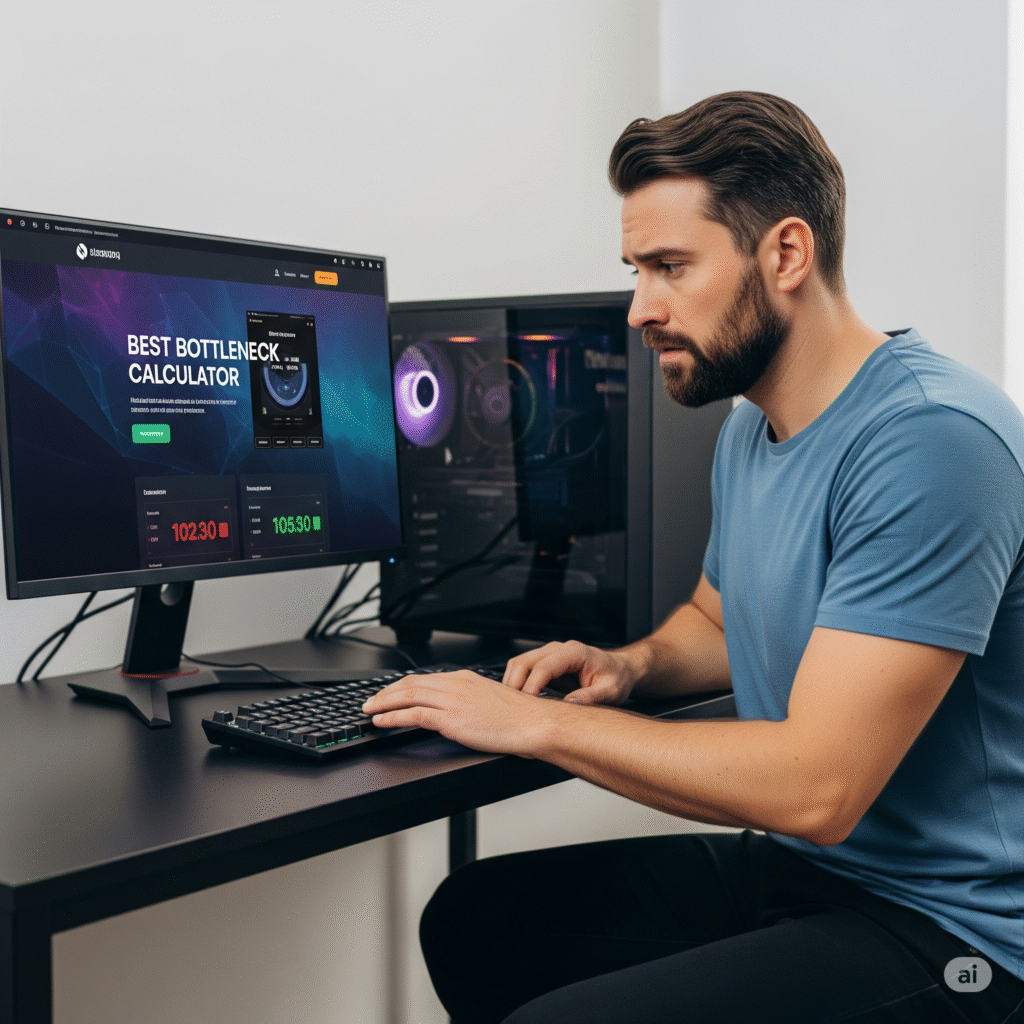Are bottleneck calculators accurate?
bottleneck calculators accurate? Not always. Learn how they work, where they fall short, and when to trust their results. Perfect guide for PC builders and gamers.

What Is a Bottleneck Calculator?
Are bottleneck calculators accurate? Not always. Learn how they work, where they fall short, and when to trust their results. Perfect guide for PC builders and gamers.
A bottleneck calculator is a tool that estimates how well your CPU and GPU will work together. You input your processor, graphics card, and sometimes RAM or resolution, and it gives you a percentage, typically saying whether your CPU or GPU will “bottleneck” the other.
Sounds simple, right? But here’s the thing…
Are Bottleneck Calculators 100% Accurate?
Short answer: No.
Most bottleneck calculators offer a rough estimate, not an exact measurement. They can point out potential imbalances in your system, but they don’t account for many real-world factors like:
- Your game resolution (1080p vs 1440p vs 4K)
- Whether you’re gaming, streaming, or multitasking
- RAM speed, dual-channel configuration, and background tasks
- Game engine optimisation (some games are CPU-heavy, others are GPU-heavy)
- Thermal throttling, BIOS settings, XMP, and more
How Do They Work?
Most tools are based on benchmark averages from synthetic tests or gaming scenarios. They might assign a “score” to your CPU and GPU, compare the difference, and flag it as a bottleneck if one is significantly faster.
But real-world performance doesn’t always follow those patterns. For example:
- A calculator may say your CPU bottlenecks your RTX 4070 by 12%, but in practice, your gameplay at 1440p may still be buttery smooth with 100+ FPS.
It might not consider that you play mostly GPU-bound games like Cyberpunk or Warzone.
What You Should Use Them For
Use bottleneck calculators as a starting point, not the final word.
They can help you:
- Avoid major mismatches (e.g., pairing an i3 with an RTX 4080)
- Get a general sense of balance between CPU and GPU
- Spot potential red flags when upgrading
But always cross-check with:
- YouTube benchmark videos
- Game-specific performance reviews
- Community builds on Reddit or PCPartPicker
A Better Way to Evaluate Your Build
Rather than focusing too much on bottleneck percentages, ask yourself:
✅ What games or tasks will I run?
✅ What resolution and settings do I care about?
✅ Am I future-proofing or upgrading again in a year or two?
Also, tools like BestBottleneckCalculator.com offer real explanations instead of just numbers, helping you understand whether it’s your CPU, RAM, or something else slowing things down.
Final Verdict: Helpful, But Not Perfect
Bottleneck calculators are not 100% accurate, but they’re useful as a rough guide.
They don’t replace real-world testing, but they can help beginners avoid obvious mistakes and build smarter systems.
If you’re new to PC building or upgrading your rig, use them wisely—but don’t obsess over small percentages. Performance is more than just a number.
Is a 10% bottleneck bad?
Not necessarily. It depends on your resolution and use case. At 1440p or 4K, GPU bottlenecks are common and usually not a problem.
Should I avoid a build with any bottleneck?
Q: Should I avoid a build with any bottleneck?
No build is perfectly balanced. Some bottlenecks are normal and can be managed with settings or small tweaks like adding RAM.
What’s the most accurate bottleneck calculator?
Look for ones that explain the cause of the bottleneck — like BestBottleneckCalculator.com — instead of just showing a percentage.
